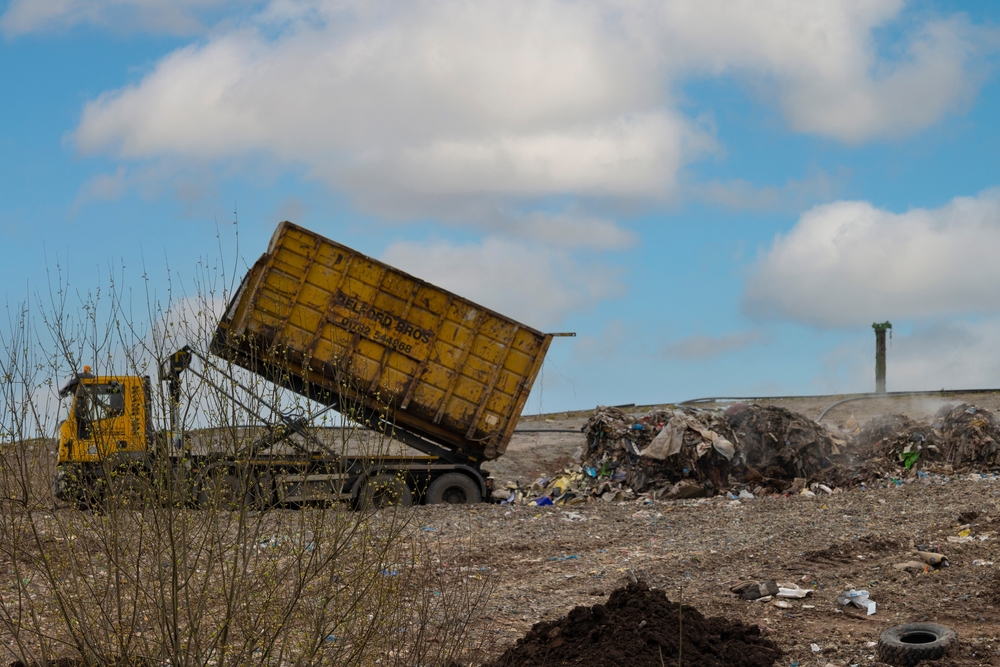Environment: Environmental Issues
Here is a list of some of the key environmental issues currently faced by the United Kingdom:
- Air Pollution: The UK has high levels of air pollution, particularly in urban areas, which can have negative impacts on human health and the environment.
- Climate Change: The UK is facing the impacts of climate change, such as rising sea levels, increased frequency of extreme weather events, and changes in precipitation patterns.
- Loss of Biodiversity: The UK has seen a decline in biodiversity, as a result of habitat destruction and other human activities.
- Water Pollution: The UK has a problem of water pollution, caused by a variety of factors, such as agricultural and industrial practices, and sewage discharge.
- Waste Management: The UK is facing issues with waste management, particularly with the disposal of plastic waste and other non-biodegradable materials.
- Soil Erosion and Desertification: The UK is facing issues with soil erosion and desertification, particularly in areas with intensive agricultural practices.
- Noise Pollution: The UK is also facing issues with noise pollution, particularly in urban areas.
- Overexploitation of Natural Resources: The UK is facing issues with over-exploitation of natural resources, particularly with the depletion of fish stocks and the destruction of habitats.
- Transportation: The UK is facing issues with transportation, including traffic congestion, air pollution, and the emissions of greenhouse gases.
It's important to note that the UK government has taken steps to address these issues through various policies and initiatives, but more needs to be done to fully address these challenges.
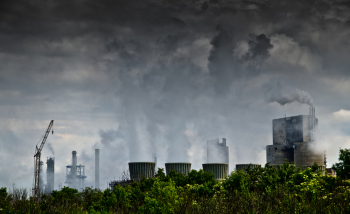
Air Pollution
Air pollution is a significant environmental issue in the United Kingdom, caused by a variety of factors, such as transportation, industry, and agriculture. The effects of air pollution on the environment in the UK are far-reaching and have a significant impact on the health and well-being of its citizens.
- Negative Impacts on Human Health: Air pollution can have a range of negative impacts on human health, such as respiratory and cardiovascular diseases, and can increase the risk of cancer. For example, a 2018 report by the Royal Colleges of Physicians and of Pediatrics and Child Health found that air pollution causes 40,000 premature deaths in the UK each year.
- Damage to Ecosystems: Air pollution can also damage ecosystems, as it can harm plants and animals, and alter the chemistry of the soil and water. For example, acid rain caused by air pollution can damage forests and other habitats, and harm aquatic life.
- Reduced Visibility: Air pollution can also reduce visibility, by reducing the amount of sunlight that reaches the surface of the earth, which can have an impact on tourism, and make it difficult for pilots to navigate.
- Climate Change: Air pollution also contributes to climate change, by releasing greenhouse gases such as carbon dioxide and methane into the atmosphere.
The UK government has taken steps to address air pollution, such as implementing stricter regulations for industry and transportation, and promoting clean energy and energy efficiency. However, more needs to be done to address this issue, such as investing in public transportation infrastructure and increasing public awareness about the impacts of air pollution on human health and the environment.

Climate Change
Climate change refers to the long-term changes in the Earth's climate, caused by the increase of greenhouse gases in the atmosphere, primarily carbon dioxide, as a result of human activities. The United Kingdom is facing a range of environmental effects due to climate change, which have a significant impact on the health and well-being of its citizens.
- Increased Frequency and Intensity of Extreme Weather Events: Climate change can lead to an increase in the frequency and intensity of extreme weather events such as heat waves, droughts, and floods, which can have devastating impacts on human populations and the environment. For example, the UK has experienced an increase in heavy rainfall and flooding in recent years, causing damage to infrastructure and homes.
- Sea Level Rise: Climate change can also lead to sea level rise, which can have severe impacts on coastal communities and infrastructure. For example, many low-lying coastal areas in the UK, such as the Thames Estuary, are at risk of flooding and erosion due to sea level rise.
- Loss of Biodiversity: Climate change can also lead to a loss of biodiversity, as it can cause changes in the distribution and abundance of species and can alter the timing of seasonal events such as migration and reproduction.
- Damage to Infrastructure: Climate change can also lead to damage to infrastructure, such as roads, bridges, and buildings due to extreme weather events.
The United Kingdom has experienced a significant increase in average temperature and a decline in annual rainfall, consistent with the global trend of climate change. This has led to more extreme weather events, such as floods and heatwaves, and has negatively impacted agriculture, biodiversity, and human health. The UK government has committed to reducing its greenhouse gas emissions to net-zero by 2050, but more action is needed to meet this goal and to mitigate the impacts of climate change.

Loss of Biodiversity
Loss of biodiversity refers to the decline in the variety of life forms on Earth, caused by human activities such as habitat destruction, pollution, and climate change. The United Kingdom is facing a significant problem of loss of biodiversity, as many species and habitats have been lost or degraded due to human activities. The effects of loss of biodiversity on the environment in the UK are far-reaching and have a significant impact on the health and well-being of its citizens.
- Loss of Ecosystem Services: Biodiversity plays a crucial role in maintaining the functioning of ecosystems, such as pollination, pest control, and soil formation. The loss of biodiversity can lead to the loss of these ecosystem services, which can have negative impacts on human populations and the economy. For example, the decline of bee populations due to habitat loss and pesticide use can affect crop pollination and food security.
- Reduced Resilience to Disturbances: Biodiversity also plays a crucial role in the resilience of ecosystems to disturbances, such as natural disasters and climate change. The loss of biodiversity can lead to reduced resilience, which can have negative impacts on human populations and the economy. For example, the loss of wetlands and other habitats can increase the risk of flooding and erosion.
- Loss of Cultural and Aesthetic Values: Biodiversity also plays a crucial role in the cultural and aesthetic values of local communities and society in general. The loss of biodiversity can lead to the loss of these values, which can have negative impacts on human populations and the economy. For example, the loss of traditional landscapes and habitats can affect the tourism industry.
- Loss of Genetic Resources: Biodiversity also plays a crucial role in the genetic resources that sustain human populations and the economy.
The United Kingdom has experienced a significant loss of biodiversity in recent years due to a variety of factors, including habitat destruction, pollution, and the introduction of invasive species. This has led to the decline and extinction of many native species, as well as the degradation of vital ecosystem services. The UK government has committed to halting the loss of biodiversity by 2020 through its Biodiversity 2020 strategy, but more action is needed to achieve this goal. Conservation efforts, such as habitat restoration and the control of invasive species, must be increased and better integrated with land-use planning and economic development.
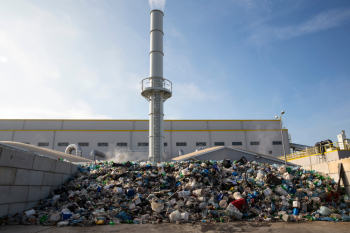
Waste Management
Waste management refers to the collection, transportation, processing, and disposal of waste materials. The United Kingdom is facing a growing problem of waste management, as the country generates large amounts of waste, and lacks proper disposal facilities and awareness of the importance of waste segregation and recycling. The effects of poor waste management on the environment in the UK are far-reaching and have a significant impact on the health and well-being of its citizens.
- Air and Water Pollution: Poor waste management can lead to air and water pollution, as waste materials can release pollutants into the air and water, which can have negative impacts on human health and the environment. For example, open dumping of waste materials can lead to the release of methane, a potent greenhouse gas, and can contaminate water sources with harmful chemicals and pathogens.
- Loss of Biodiversity: Poor waste management can also lead to a loss of biodiversity, as it can cause damage to natural habitats, and harm plants and animals that live in these areas. For example, the accumulation of plastic waste in oceans and other water bodies can harm aquatic life, including fish and sea turtles.
- Climate Change: Poor waste management also contributes to climate change, by releasing greenhouse gases such as methane and carbon dioxide from decomposing organic matter in landfills.
- Health Hazards: Poor waste management also poses health hazards for people living near or working at landfills and dumpsites, as it can release harmful chemicals and pollutants that can cause respiratory diseases, and other health problems.
Waste management in the United Kingdom has improved in recent years, with increased recycling rates and a reduction in the amount of waste sent to landfills. However, more progress is needed to achieve the government's goal of becoming a zero-waste economy. The UK generates a significant amount of waste and there is still a lot of room for improvement in terms of reducing, reusing and recycling waste. The government has implemented policies and initiatives such as the waste hierarchy, extended producer responsibility and the implementation of the EU's circular economy package.
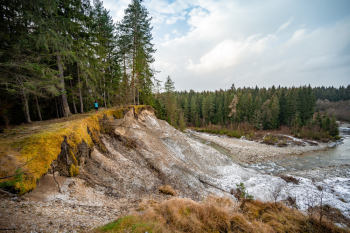
Soil Erosion and Desertification
Soil erosion refers to the movement of soil particles by water, wind, or other natural processes. Desertification refers to the process of land degradation in arid, semi-arid, and dry sub-humid areas, caused by various factors including climate change and human activities. Both soil erosion and desertification can have negative effects on the environment and human well-being, particularly in the United Kingdom where intensive agricultural practices and urbanization have led to the loss of soil quality and fertility.
- Loss of Soil Fertility: Soil erosion and desertification can lead to the loss of soil fertility, which can affect agricultural productivity, and food security. For example, intensive agricultural practices that lead to soil erosion can reduce the ability of the soil to retain water and nutrients, which can decrease crop yields.
- Loss of Biodiversity: Soil erosion and desertification can also lead to a loss of biodiversity, as it can cause damage to natural habitats, and harm plants and animals that live in these areas. For example, the loss of soil and vegetation can lead to the decline of bird populations that depend on these habitats.
- Flooding and Landslides: Soil erosion and desertification can also lead to increased risk of flooding and landslides, as it can remove vegetation that holds soil in place and protect it from erosion by wind and rain.
- Climate Change: Soil erosion and desertification also contributes to climate change, as it can reduce the ability of soils to store carbon and protect against flood and erosion.
Soil erosion and desertification are significant issues in the United Kingdom, caused by a variety of factors including overuse of land, intensive farming practices, climate change, and development. These issues lead to the degradation of soil quality, loss of biodiversity, and reduced agricultural productivity. The UK government has implemented policies and initiatives to address soil erosion and desertification, such as agri-environment schemes that provide financial incentives for farmers to adopt sustainable practices, and the Countryside Stewardship scheme that promotes the restoration of habitats and the protection of soil and water resources. However, more action is needed to fully address these issues, particularly in terms of reducing land use pressures, increasing funding for conservation efforts, and better integration of policies across different sectors.
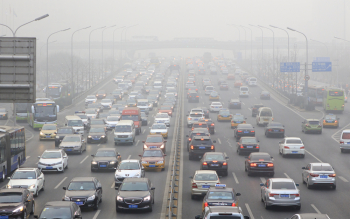
Noise Pollution
Noise pollution refers to excessive and unwanted sound that can have negative effects on the environment and human well-being. The United Kingdom is facing a growing problem of noise pollution, particularly in urban areas, caused by various sources such as transportation, industrial activities, and construction. The effects of noise pollution on the environment in the UK are far-reaching and have a significant impact on the health and well-being of its citizens.
- Negative Impacts on Human Health: Noise pollution can have a range of negative impacts on human health, such as sleep disturbance, hearing loss, cardiovascular disease, and stress. For example, exposure to high levels of noise from transportation, such as airplanes and trains, can lead to sleep disturbance, which can have negative impacts on physical and mental health.
- Loss of Biodiversity: Noise pollution can also have a negative impact on biodiversity, as it can affect the behavior and communication of animals and can lead to the decline of populations of birds, bats and insects. For example, noise pollution from transportation can disturb the migration of certain bird species and bats and disrupt the reproduction of insects.
- Reduced Quality of Life: Noise pollution can also reduce the quality of life, by making it difficult for people to work, relax, and communicate, and by affecting the aesthetics of urban and rural areas.
- Climate Change: Noise pollution also contributes to climate change, as it can increase energy consumption and emissions of greenhouse gases from transportation and other sources.
The UK government has taken steps to address the issue of noise pollution, such as implementing stricter regulations for transportation and industrial activities and promoting quieter technologies. However, more needs to be done to address this issue, such as increasing public awareness about the impacts of noise pollution on human health and the environment and investing in noise-reducing infrastructure.
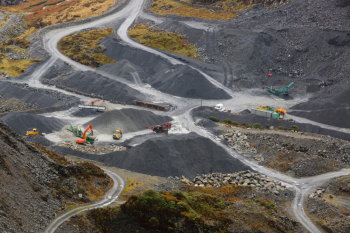
Over-Exploitation of Natural Resources
Over-exploitation of natural resources refers to the excessive extraction, use, or consumption of natural resources, which can have negative effects on the environment and human well-being. The United Kingdom has a history of over-exploiting its natural resources, particularly in the past, and some of these negative effects are still present today.
- Depletion of natural resources: Over-exploitation of natural resources can lead to the depletion of resources, such as minerals, fossil fuels, and timber, which can have negative impacts on the economy and human populations. For example, the over-exploitation of coal mines in the UK in the past led to the depletion of coal resources and the decline of the coal mining industry.
- Loss of biodiversity: Over-exploitation of natural resources can also lead to a loss of biodiversity, as it can cause damage to natural habitats, and harm plants and animals that live in these areas. For example, over-fishing in the UK's coastal waters can lead to the decline of fish populations, and can harm aquatic life.
- Climate change: Over-exploitation of natural resources also contributes to climate change, as it can increase emissions of greenhouse gases from the extraction, transport, and burning of fossil fuels, and deforestation.
- Water scarcity: Over-exploitation of natural resources can also lead to water scarcity, as it can deplete water resources and can have negative impacts on human populations and the economy.
The UK government has taken steps to address the issue of over-exploitation of natural resources, such as implementing stricter regulations for resource extraction, and promoting sustainable resource use and conservation. However, more needs to be done to address this issue, such as investing in renewable energy and resource-efficient technologies and increasing public awareness about the importance of sustainable resource use.

Transportation
Transportation refers to the movement of people, goods, and services from one place to another. Transportation plays a crucial role in the economy and society, but it also has significant impacts on the environment in the United Kingdom.
- Air Pollution: Transportation is a major source of air pollution in the UK, as vehicles emit harmful pollutants such as nitrogen oxides, particulate matter, and greenhouse gases. These pollutants can have negative impacts on human health and the environment, such as respiratory and cardiovascular diseases, and climate change.
- Noise Pollution: Transportation also generates noise pollution, which can have negative impacts on human health and the environment, such as sleep disturbance, hearing loss, and reduced quality of life.
- Loss of Biodiversity: Transportation can also have a negative impact on biodiversity, as it can cause damage to natural habitats and harm plants and animals that live in these areas. For example, the construction of roads and highways can lead to the fragmentation of habitats, which can affect the migration and reproduction of certain species.
- Climate Change: Transportation also contributes to climate change, as it is a major source of greenhouse gas emissions, particularly carbon dioxide, from the burning of fossil fuels.
- Energy Consumption: Transportation also consumes significant amounts of energy, which can have negative impacts on energy security and sustainability.
The UK government has taken steps to address the issue of transportation's impact on the environment, such as implementing stricter regulations for vehicle emissions, promoting the use of public transportation, cycling, and walking, and investing in cleaner and more efficient transportation technologies. However, more needs to be done to address this issue, such as increasing public awareness about the impacts of transportation on the environment and the benefits of sustainable transportation options.
Copyright © 1993—2024 World Trade Press. All rights reserved.

 United Kingdom
United Kingdom 